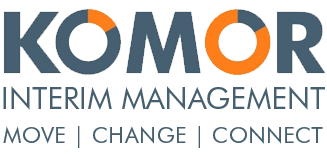THE INTERIM MANAGER AS A BRAND
This is a collaborative article by three interim professionals Ulvi Aydin, Malte Borchardt and Ralf Komor on the subject: THE INTERIM MANAGER AS A BRAND.
Interim Manager: Business megastars or just excellent? Being a good interim manager is one thing. If nobody knows it, then something is wrong.
INTERIM MANAGER: BUSINESS MEGASTAR OR JUST EXCELLENT?
Being a good interim manager is one thing. If nobody knows it, something is wrong.
By Ulvi Aydin, Malte Borchardt and Ralf Komor
There are around 1.5 million permanently self-employed people in Germany. Of these, more than 300,000 work in the consulting sector. About 10,000 are interim managers whose expertise places them among the elite. Of these top executives, about 500 are listed with the Dachgesellschaft Deutsches Interim Management e.V. (DDIM). They are called in when a company is in trouble, when there is a need for realignment and transformation, or when a temporary vacancy has to be filled at short notice.
Interim managers have the vital experience gained from a large number of projects. They are able to gain an overview of the situation in the shortest possible time and derive the necessary action steps in a targeted manner. They move budgets worth millions and save companies with thousands of employees. They communicate clearly, focus on what matters and get to the point. They are always overqualified. But that is exactly what guarantees security in implementation…
You need to have a strong brand awareness.
Excellence in their industry or in their area of expertise is something that they all have. While this can be a unique selling point, one thing is crucial: In order to be visible in the market, they need to have a strong brand awareness and present themselves accordingly. And only about 10 per cent of this elite do this. They have understood what it means to “be a brand”, what makes it possible and what also makes it easier. And they put it into practice.
“Interim managers need to have a strong brand awareness and they need to present themselves accordingly in order to become visible on the market.”
Good brands inspire confidence and open the right doors
You need to have a clear brand image if you want to be perceived by companies as an interim manager or even the face of interim management providers – i.e. the intermediaries for mandates. After all, interim managers thrive on a high level of visibility and a clear brand essence, coupled with good cooperation with the providers. The clearer the positioning and the clearer the brand, the better it is for interim management providers. Interim managers and providers have a symbiotic relationship: The providers get the managers’ top mandates. The managers, in turn, provide their clients with concentrated knowledge and enhance the reputation of the providers when projects are successfully completed.
It’s the same everywhere: good brands sell better, inspire trust and are better understood. The interim management market is no different. Those who are perceived as a brand will receive more enquiries and will be able to influence the framework parameters, e.g. the daily rate and the utilisation rate, at which they accept mandates.
To differentiate themselves, interim managers can take a number of approaches: They can specialise in a particular industry or a few market segments, work only in certain regions or focus on their own personality. The important thing is that they see themselves as a brand every second of every day and that they act and live accordingly. The basis for this is crystal-clear positioning.
Appeal to the head and to the gut
The positioning has to appeal to both the rational mind and the irrational emotions of the customer. A key question to ask is: “What benefit do I offer my customers? The benefit is the basis for all further communication. The identification of the core benefit is not an easy task, but it is the manager’s most important task because it is the basis for all other marketing activities. The core benefit appeals to the rational side of the customer.
In the next positioning step, interim managers should address the emotional side of their potential clients. This can be done, for example, by highlighting the personality of the interim manager, by emotionalising his or her offer or the result of his or her service – and by describing the service as the way to get there. Core benefits and emotionalisation are the building blocks of a strong brand. The sharper the brand profile, the more customers you exclude – but the more clearly you will be seen by those you’ve defined as the most relevant customers for what you’re offering…
Multifaceted marketing: Choosing the right means and the right ways
No matter which benefit and which form of emotionalisation interim managers choose, they must communicate these characteristics accordingly. After all, everyone wants to be the market leader. One way to achieve this is through communication leadership. This requires clean brand management and continuous marketing. Some interim managers invest well into five figures in their marketing. The marketing tools they use are many and varied: a website, a blog or video blog, podcasts, guest articles in business magazines, corporate publishing, newsletters, books, case studies, speaking engagements and seminars are all part of the marketing repertoire of the managerial elite.
It is always important to stay true to one’s own brand, to address the decision maker with the right messages and to know the path to the decision maker of the potential customer. Regular communication with suppliers helps to keep you on their radar. They then contact potential customers. But it is necessary to do marketing beyond that. So the questions are Who are the decision makers? And how can I stay in their minds?
“The way to the client is increasingly through the younger generation, whose media behaviour has changed.”
How clients get to interim managers has also changed dramatically with rapid technological development and changing media habits. Sometimes teams decide and a senior person comes along later to approve the budget. Often, however, juniors are tasked with making an initial shortlist of potential interim managers. They are usually all under 40 and have a very different media behaviour to older clients. Interim managers should bear this in mind when approaching clients – whether they want to inspire, shake up or provoke. If they do, they will be in demand even in times of crisis such as the current one…
Stability and a clear vision in times of crisis
Crisis is the daily business of an interim manager. Companies pay particular attention to who they bring in to solve their problems in times of crisis. Those who have a clear brand profile and communicate it authentically show companies immediately what and who is coming. If the core benefits or message are not clear, it is difficult for a brand to stick in the minds of decision-makers. On the other hand, decision-makers will think of the brand immediately if the benefits and the brand message are clear:
- “The B2B sales professional Mayer. We need him now to realign our sales”.
- The board is too homogeneous. Someone like Mr Müller, who addresses things firmly and directly, can help us now.”
- “Mrs Schmidt does digital transformation for industrial SMEs. Let’s give her a call.”
Conclusion: Consistently communicate the brand image.
“Brand is what’s left when you’ve forgotten everything else about the product or service.” Interim managers are excellent at what they do. In order to be truly successful, they need to think of themselves as a brand and act in a consistent manner. This means taking a stand and differentiating themselves. It also means deliberately excluding certain client groups. This makes temporary managers even more visible and clear to their core target group. Those who continuously communicate the brand image may sometimes feel like a well-known music group that has to play the same songs over and over again – but that is exactly what paves the way: from one-hit wonder to megastar!
“Brand is what remains when you have forgotten everything else about the product or performance”
The authors:
Ulvi Aydin
Ulvi AYDIN, born 1960, is an award-winning premium executive interim manager, advisory board member, corporate and entrepreneurial developer, XING insider and book author. As an internationally active interim CEO and CSO and advisory board member, he supports medium-sized companies and corporations in brand and market development, repositioning, restructuring and sales excellence. He writes about his experiences as an interim manager in various business media (WirtschaftsWoche, Springer Professional, Transformation Magazine, Controller Magazine, and many more). More information: www.aycon.biz
Malte Borchardt
Malte Borchardt, born in 1970, is an expert in marketing interim managers. He has been intensively involved in the interim management market since 2003. For many years, the business graduate supported the umbrella organisation Deutsches Interim Management (DDIM) as a service provider. At the same time, he was repeatedly involved in marketing and communication projects as an interim manager himself. He is a partner of the interim management organisations DDIM, DÖIM and AIMP. Since 2015, he has been offering marketing and communication services specifically for interim managers under the brand forma interim – Marketing für Macher. Together with his specialised team, he provides support in terms of positioning, market presence and market development, thus helping his clients to achieve a professional appearance. Almost 100 comprehensive and successful reference projects speak for themselves. More information: www.forma-interim.de
Ralf Komor
Ralf H. KOMOR, born in 1961, is an interim manager, certified advisory board member, Most Trusted Adviser for consulting family businesses and a Springer author. He develops new business models and sales strategies for start-ups, MNCs and medium-sized businesses and accompanies change processes in people and organisations. As an interim manager and absolute B2B sales professional at C-level, he looks back on more than 3 decades of experience in national and international projects. He was and is primarily active for manufacturing companies, in plant construction as well as in the contract business. His focus is on developing, restructuring and successfully managing the sales of products, systems, plants and services. More information: www.en.komor.de





